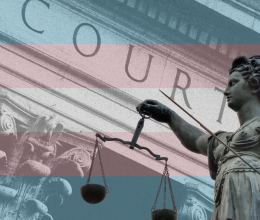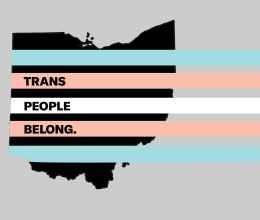This week, Federal Judge Timothy Black ruled that Ohio must recognize the marriages of same-sex couples who are legally married in other states.
The decision does not require Ohio to issue marriage licenses to same-sex couples. It only requires Ohio to recognize marriages performed in other states.
The lawsuit that led to this decision involves four LGBT couples, three of whom are expecting a child in the next two months and want to list both parents’ names on their child’s birth certificate.
Here are some of the key legal principals addressed in Judge Black’s historic decision:
- The Right to Marry
-
The freedom to marry has widely been held to be a fundamental right protected by the Due Process Clause of the United States Constitution. This right was reinforced with the Loving decision in 1967, which ruled that a ban on interracial marriages was unconstitutional.
Over forty years later, people are still being denied the right to marry.
In Judge Black’s decision, he finds that marriage of same-sex couples is a right protected by the Supreme Court based on past marriage decisions. Once this fundamental right is recognized, it cannot be denied to a particular group simply because that group has been historically denied that right.
In Ohio’s case, voters denied this right with a vote in 2004 to ban marriage and anything that resembles marriage of same-sex couples.
Judge Black reaffirms that “the fundamental right to marry is available even to those who have not traditionally been eligible to exercise that right.”
- Marriage Recognition from State to State
-
The Supreme Court of the United States recently held that when a state denies the marriage of a same-sex couple who wed in another state, it intrudes into the realm of private marital, family, and intimate relations. Such a refusal demeans a couple whose moral and sexual choices are protected by the Constitution.
- Parenting Rights
-
Parents have fundamental legal rights in the care and control of their children. When a parent is left off a child’s birth certificate this burdens those fundamental rights. As Judge Black points out, “[o]btaining a birth certificate that accurately identifies both parents of a child . . . is vitally important for multiple reasons.” “Identification on the child’s birth certificate is the basic currency by which parents can freely exercise these protected parental rights and responsibilities.”
- Popular Belief vs. The Rule of Law
-
The state of Ohio is relying heavily on the argument that the will of Ohio voters should stand. However, Judge Black reminds us that “unconstitutional laws cannot stand, even when passed by popular vote.”
This means that the will of the people, which is actually beginning to lean toward marriage equality, cannot be used to deny a Constitutional right.
Judge Black’s decision is currently on hold pending appeal. Ultimately, many believe this case will be decided by a higher court, perhaps even the Supreme Court of the United States.







